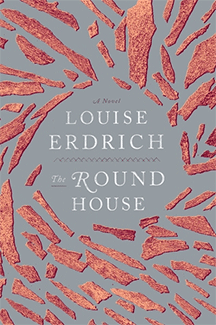By Carey Wall
A passionate speech by Judge Coutts to his son, Joe, gives a history lesson. It tells of lingering, crippling injustice:
“Take Jackson vs. McIntosh. It’s 1823. The United States is forty-seven years old and the entire country is based on grabbing Indian land as quickly as possible in as many ways as can be humanly devised. Land speculation is the stock market of the times. . . . The land madness is unmanageable by the nascent government. Speculators are acquiring rights on treaty-held Indian land and on land still owned and occupied by Indians—white people are literally betting on smallpox. . . . It wasn’t the decision itself that still stinks, though, it was the obiter dicta, the extra incidental wording of the decision. Justice Marshall went out of his way to strip away all Indian title to all lands viewed—i.e., ‘discovered’—by Europeans. He basically upheld the medieval doctrine of discovery for a government that was supposedly based on the rights and freedoms of the individual. Marshall vested absolute title to the land in the government and gave Indians nothing more than the right of occupancy, a right that could be taken away at any time. Even to this day, his words are used to continue the dispossession of our lands. But what particularly galls the intelligent person now is that the language he used survives in the law, that we were savages living off the forest, and to leave our land to us was to leave it useless wilderness. That our character and religion is of so inferior a stamp that the superior genius of Europe must certainly claim ascendancy and on and on.”
The story that imagines the living consequences of this history is centrally Joe’s when he is thirteen and not yet a lawyer in his own turn. The mature man tells what happened in the chief episodes of his shortened youth. The story has to do with white men violating Indian women, and thus their families, knowing they can get away with it, at least legally. Not just any low-life white man, either; rather, a state governor, which makes Judge Coutts’ point.
Joe’s story is the old, ever renewable story of the loss of innocence. It begins when Joe’s mother, the tribe’s registrar of membership, is brutally raped. (Erdrich has said that rapes of Indian women are currently rampant, and usually committed by white men who cannot be tried and sentenced by Indian courts when the acts were committed on Indian lands.) His mother is a significant target because in keeping the roles she knows everybody’s secrets: “Through the generations we have become an impenetrable undergrowth of names and liaisons. At the tip of each branch . . . the children are found, those newly enrolled by their parents, or often a single mother or father, with a named parent on the blank whose identity if known might shake the branches of the other trees. Children of incest, molestation, rape, adultery, fornication beyond the reservation boundaries or within, children of white farmers, bankers, nuns, BIA superintendents, police, and priests.” Joe’s mother’s traumatized silence, the ineptitude of government investigators, and his father’s now-discovered inconsequence as a judge complicate his sense of responsibility. His refuge lies in three other thirteen-year-old boys, especially one who heads hard into sexuality and love. Joe’s own awakening sexuality attracts him to his uncle’s ex-showgirl partner, in whom he meets both help and betrayal. Other characters include Joe’s grandfather Mooshum, through whom Joe learns the old, still unextinguished Indian law.
Joe has been born into his parents’ middle age, after his father thought he would have no son and his line was at an end. There is a new Coutts generation and the boy is wholly intelligent and serious. And he is vulnerable, as are his friends in their thirteenth year, to undetected consequences of blind loyalty and acting on the spur of the moment’s passion. Erdrich gives her younger Indian generation their version of the American road trip, an emblematic one.
Carey Wall is professor emerita in the Department of English and Comparative Literature at San Diego State University. San Diego State University is home to the Nu of California chapter of Phi Beta Kappa.




